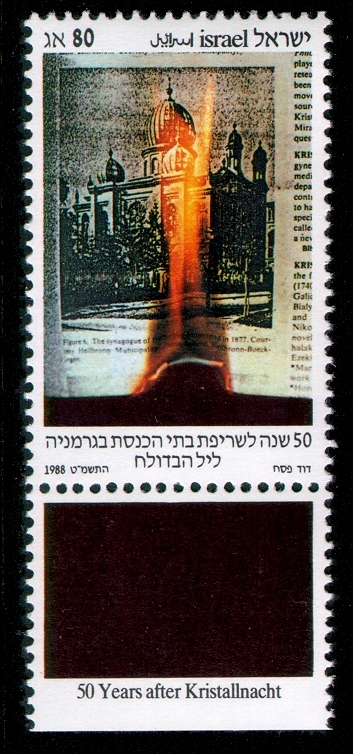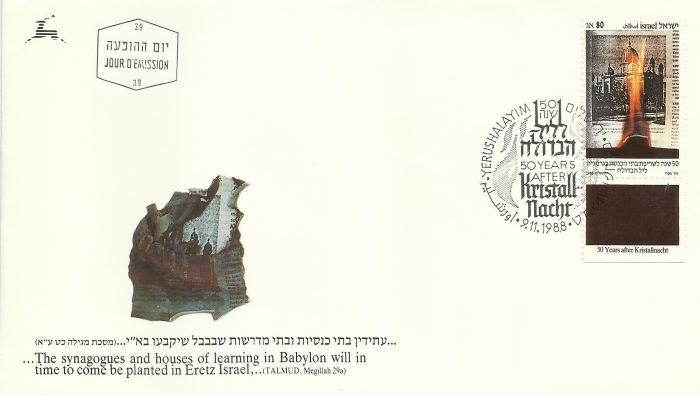86th Anniversary of Kristallnacht
November 9-10, 2024
We Must Not Forget!
|
On the night of November 9-10, 1938, mobs went on a rampage throughout Nazi Germany. This wave of pogroms, which became known as "Kristallnacht" ("The Night of the Broken Glass") was the severest eruption of violence perpetrated against the Jews of Germany until the onset of the deportations and annihilations during the war. The riots were to have far-reaching consequences for the status and conditions of German Jewry. 1938 was a calamitous year for the German Jewish community. It was in 1938 that Hitler's drive for political and territorial aggrandizement reached its peak (the annexation of Austria and the Sudetenland without war), and it was that year that witnessed the promulgation of the most sweeping anti-Jewish edicts in a continuing campaign of discrimination and persecution. Under the "Names Decree" every Jew had to assume in addition to his or her first name the identifying name of Israel or Sarah. Passports of Jews were stamped with the letter "J" in red, signifying Jude. Jewish property was expropriated by various laws and regulations, and official recognition of the public standing of the Jewish communities was annulled. The Anschluss - the annexation of Austria to the German Reich in March 1938 - set in motion a process of coercive measures intended to force the Jews out of that country. Overseeing the implementation of this policy was Adolf Eichmann. In July 1938, 32 countries sent representatives to an international conference held at Evian in the heart of a French resort district, with the purpose of finding a haven for refugees from the Third Reich. However, it soon became apparent that the free democracies were unwilling to offer the refugees a home. The gates of the world remained shut. In Germany itself, Jews of Russian nationality were ordered to leave the country. Subsequently, following restrictions Poland had placed on the right of citizenship of its nationals residing abroad, the German authorities decided to expel Jews bearing Polish citizenship, even though many of them had lived in Germany for decades. In October 1938, 17,000 Jews were removed from their homes throughout Germany, taken to the Polish border and forced across to the other side with no possessions but the clothes on their backs. On November 7, a Jewish youth named Herschel Grynszpan, whose parents were among those expelled to Poland, shot and killed an official in the German embassy in Paris. The assassination served as the pretext for "Kristallnacht", an outbreak of the Nazi Party and the SA (Storm Troopers) with the concurrence and encouragement of the Nazi leadership. The signal to start the operation was given by the Minister of Public Enlightenment and Propaganda, Josef Goebbels. During that night 171 synagogues were set ablaze and many others destroyed: 7,500 shops and businesses of Jews were ransacked and vandalized, 91 Jews were murdered and some 30,000 were thrown into concentration camps. The events of "Kristallnacht" were a watershed in the history of German Jewry. It marked the Nazis' shift from discrimination through legislation and decrees to brutal street violence - a portent of what lay in store for the Jews. The 1988 stamp's inscription reads: "50 years after the burning of the synagogues in Germany - Kristallnacht". |
|
Educational links about the Kristallnacht |
|
Holocaust Encyclopedea: Kristallnacht |
|
Yad Vashem: The November Pogrom ("Kristallnacht") |
|
Google Search: Kristallnacht Newpaper Headlines |
| Videos about Kristallnacht |
|
Kristallnacht: Night Of Broken Glass |
|
Holocaust survivors recount their memories of Kristallnacht |
|
Survivors Remember Kristallnacht: Susan (Hilsenrath) Warsinger |
|
Survivors Remember Kristallnacht: Johanna (Gerechter) Neumann |
|
Survivors Remember Kristallnacht: Rabbi Gerd Jacob (Zwienicki) Wiener |
|
Holocaust Survivors Remember Kristallnacht |
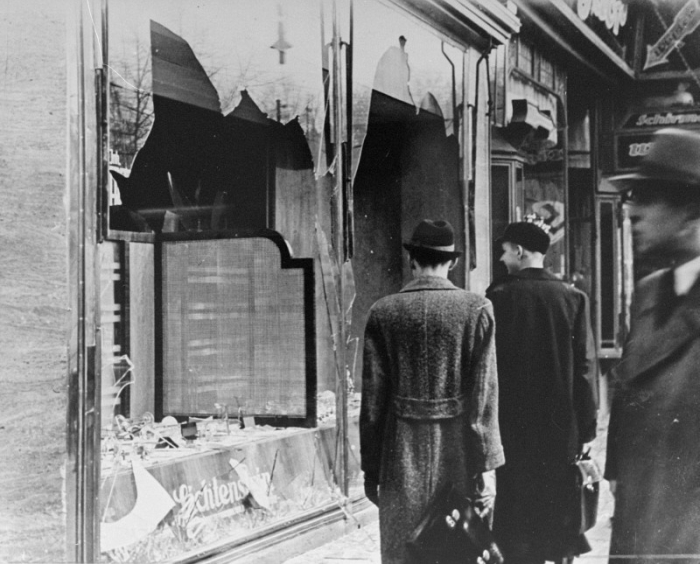
Shattered storefront of a Jewish-owned shop destroyed during Kristallnacht - Berlin, Germany, November 10, 1938
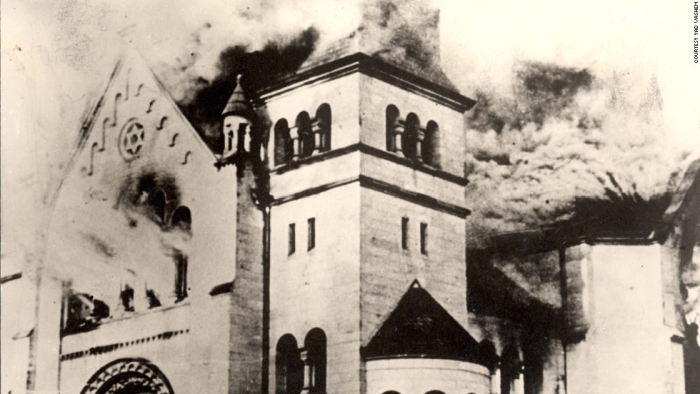
A Synagogue Burns in Baden-Baden Germany
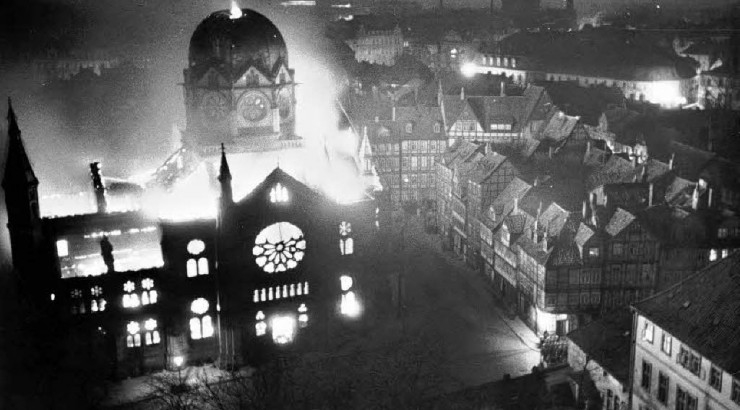
Burning of the synagogue in Hanover, Germany, night of 9 November 1938
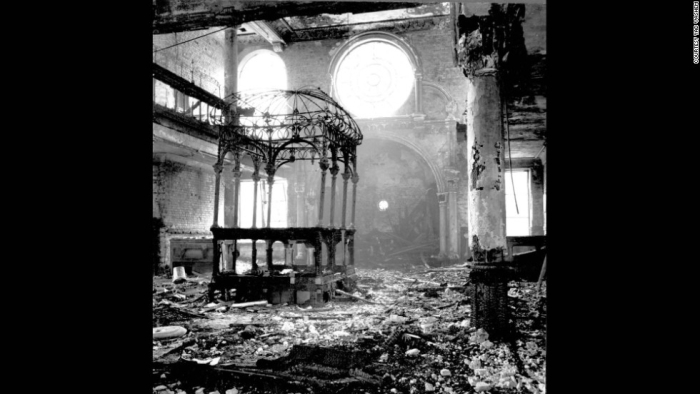
Debris lays scattered thoughout the interoir of a synagogue
in Nueremberg Germany
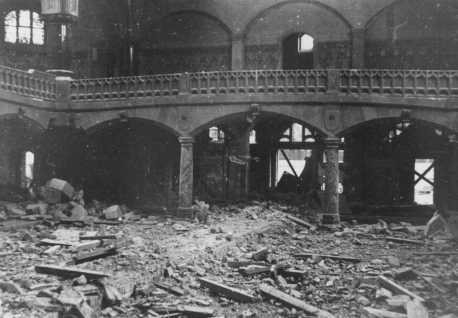
Interior of a synagogue destroyed during Kristallnacht
Dortmund, Germany, November 1938
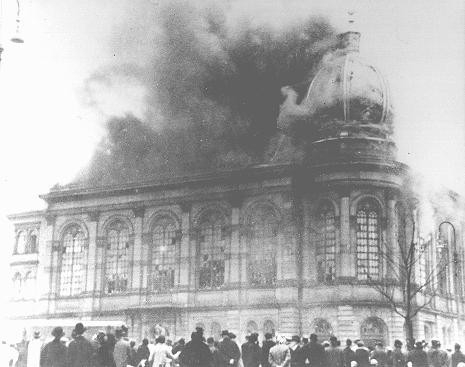
The Boerneplatz synagogue in flames during the Kristallnacht pogrom
Frankfurt am Main, Germany, November 10, 1938
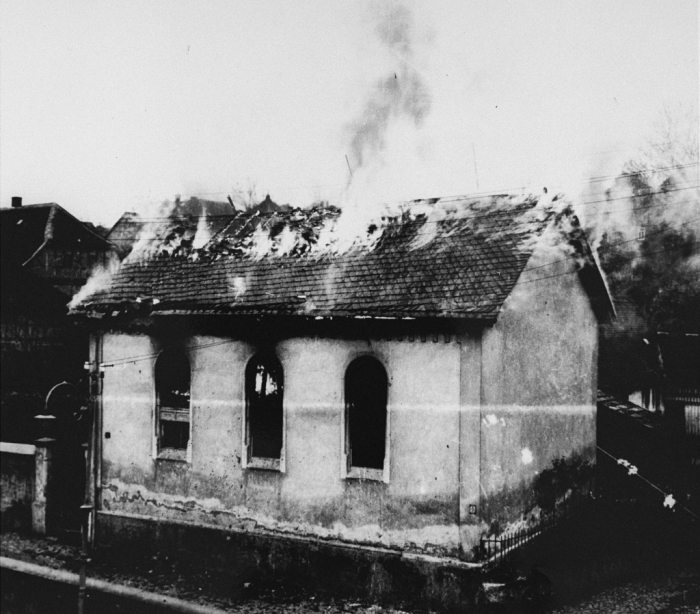
The synagogue in Oberramstadt during Kristallnacht.
Oberramstadt, Germany, November 9-10, 1938
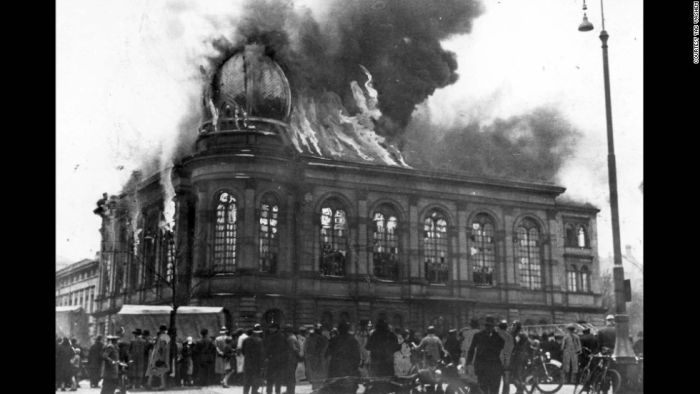
The Boemestrasse Synagogue
in Frankfurt Germany burns on November 10 1938
Please Click on the Icons to Share this Page.
Thank You!!
 |
 |
 |
 |
 |
Click to share by email:
86th Anniversary of Kristallnacht - We Must Not Forget!
 Holocaust Educational Sites
Holocaust Educational Sites
 JR Links: Prayers
JR Links: Prayers

JR Home
© 2022 - 2024 jr.co.il - Jacob Richman
